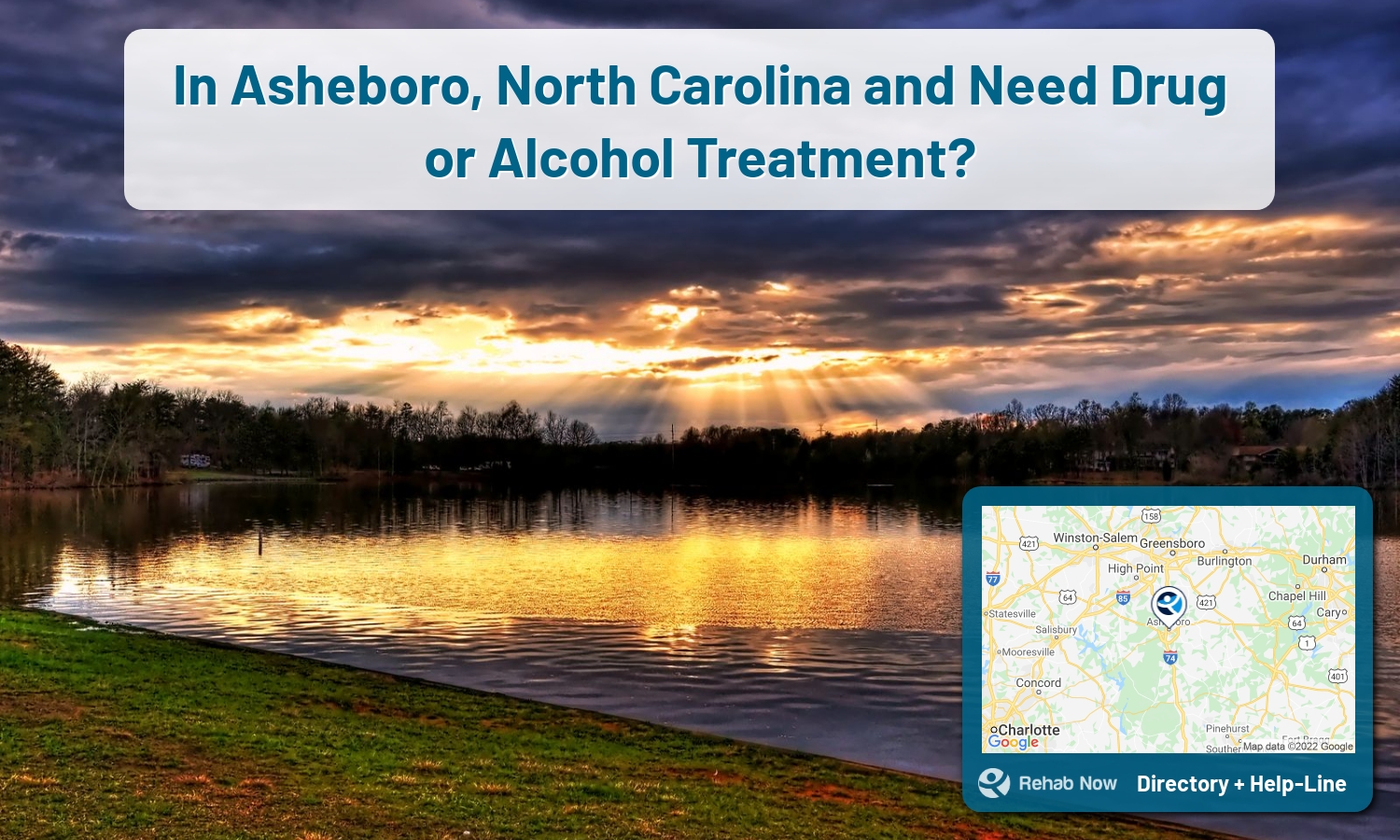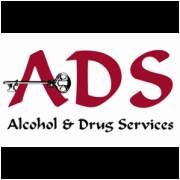In Asheboro, North Carolina and Need Drug or Alcohol Treatment?
The drug addiction problem in Asheboro, North Carolina, is quite severe. According to recent statistics, over 9,000 people live in Asheboro who struggle with addiction. This accounts for about 8% of the population. Additionally, there are about 15 drug treatment facilities in Asheboro, but the demand for treatment often exceeds the availability of beds.
The impact of drug addiction and abuse on the community in Asheboro, North Carolina, is significant. Drug addiction and abuse can lead to criminal activity, such as theft or robbery, to get money to buy drugs. In addition, drug addiction and abuse can lead to violence within relationships and families. Drug addiction and abuse can also lead to overdose, which can be fatal. Finally, drug addiction and abuse can cause individuals to withdraw from society and become isolated.
In Asheboro you and your loved ones will lead a safe and secure life, away from drug use, with plenty of facilities listed below. With a range of drug and alcohol recovery programs available across North Carolina, Asheboro provides resources for care and a happier future.
Get Professional Guidance on Finding Treatment
We will help you find treatment based on your location, budget, and specific needs and help you get started safely.
Free + Confidential Consultation
Browse 9 Centers in Asheboro, North Carolina
Alcohol and Drug Services - Montgomery County
Montgomery County Alcohol and Drug Services in Asheboro, NC provides personalized and compassionate care for individuals dealing with opioid addiction, substance abuse, and drug addiction with varying levels of care and treatment options, including referrals to support groups and local resources.



Daymark Recovery Services - Asheboro offers comprehensive care and support services to those struggling with addiction and mental health through evidence-based treatments and specialized support services, providing individualized treatment plans to help clients manage their recovery and reach their fullest potential.

Randolph County Day Reporting Center
The Randolph County Day Reporting Center in Asheboro, North Carolina is an accredited treatment facility that offers a comprehensive range of services for individuals struggling with substance abuse and mental health challenges, including alcoholism, opioid addiction, dual diagnosis, and more, with various levels of care such as outpatient programs, intensive outpatient programs, partial-hospitalization, and detox services.


Triad Therapy - Asheboro in Asheboro, North Carolina is an addiction treatment facility that offers various services including drug rehab, counseling, group therapy, and family counseling, alongside personalized treatment plans in accordance with global accreditation standards set by CARF. They accept private health insurance and are affiliated with Triad Therapy, a national network of addiction treatment providers.

Randolph Fellowship Home - Mangum House is a residential alcohol and substance abuse rehabilitation center in Asheboro, North Carolina that offers evidence-based treatments, personalized care, and a wide range of clinical services to help clients cope with the underlying issues that led to their addiction.
Randolph Fellowship Home - Asheboro
Randolph Fellowship Home - Asheboro is a treatment facility in North Carolina that provides comprehensive recovery services to individuals struggling with addiction, including therapy sessions, support groups, and employment assistance, while also offering medical monitoring and accreditation from multiple organizations.


ASG Services
ASG Services provides top-quality addiction treatment in Asheboro, NC with experienced and compassionate staff.
AdAlcohol & Drug Services is an accredited CARF provider offering an array of personalized services to individuals in Asheboro, North Carolina struggling with addiction, dual diagnosis, and mental health issues.


AA - Alcoholics Anonymous
Information About Substance Abuse and Addiction in Asheboro, NC
Substance abuse and addiction are serious problems in Asheboro, North Carolina. According to the North Carolina Department of Health and Human Services, in 2016, there were 7,531 hospitalizations due to substance abuse in North Carolina. The most commonly abused substances in Asheboro, NC, are alcohol, cocaine, and heroin.
Substance abuse and addiction can have a number of negative consequences, including job loss, relationship problems, financial difficulties, and legal problems. If you or someone you know is struggling with substance abuse or addiction, it is important to get help as soon as possible. There are many drug treatment facilities in Asheboro, North Carolina, that can help you or your loved one get sober and on the road to recovery.

What types of treatment are available in Asheboro, North Carolina?
A few different drug treatment options are available in Asheboro, North Carolina. Some people may prefer to attend an inpatient facility, while others may choose an outpatient program. There are also a variety of 12-step programs available in the area. Inpatient facilities provide around-the-clock care and supervision. This type of treatment is often best for those with severe addiction who need close monitoring. On the other hand, outpatient programs allow patients to live at home while attending daily treatment. 12-step programs, such as Alcoholics Anonymous and Narcotics Anonymous, are also available in Asheboro, North Carolina.
The best way to find the best drug treatment facility for someone in Asheboro, North Carolina, is to ask for referrals from friends or family members or look online for reviews. Ensuring that the facility is accredited and has a good reputation is important. Once you have found a few potential facilities, it is important to visit them and talk to the staff to get a feel for the environment and the program. It is also important to ensure that the facility offers detoxification services, as this can be an important step in recovery.
Drug Abuse Statistics in Asheboro, North Carolina
Statistics show that around 3,500 people in Asheboro currently abuse drugs or alcohol. Alcohol is the most commonly abused substance in Asheboro, North Carolina, with about 1,000 residents consuming it regularly. Drugs come second, with 2,300 abusers of some drug and 200 abusers of more than one type of drug. Substance abuse in Asheboro is a major problem and is responsible for different city issues.
- In 2016, there were 1,521 drug overdose deaths in North Carolina. This is a rate of 17.8 per 100,000 population.
- Of those overdose deaths, 694 (45.7%) were from opioids (prescription and illicit).
- Asheboro saw 11 opioid overdose deaths in 2016, which is a rate of 13.7 per 100,000 population.
- From 2015 to 2016, the number of opioid overdose deaths in North Carolina increased by 27.3%.
Additional Treatment Centers in North Carolina
North Carolina ranks 29th in the nation for overall substance abuse. Many of the drugs abused in the state are illicit, and many of these are opioids. Prescription opioids are readily available due to the high rates of medical workers prescribing them. The number of prescriptions has increased tenfold since the 1980's. Opioid overdoses are the most common type of death in North Carolina.
Still haven't found the right recovery center? Browse nearby North Carolina cities.
- Albemarle, NC (34.0 mi.)
- Spring Lake, NC (60.1 mi.)
- Elizabethtown, NC (101.1 mi.)
- Pineville, NC (75.7 mi.)
- Midway Park, NC (154.8 mi.)
- Morehead City, NC (186.7 mi.)
- Candler, NC (163.2 mi.)
- Graham, NC (33.0 mi.)
- Butner, NC (65.0 mi.)
- Cornelius, NC (61.8 mi.)
- Pink Hill, NC (124.4 mi.)
- Gastonia, NC (84.3 mi.)
- Charlotte, NC (78)
- Greensboro, NC (58)
- Raleigh, NC (56)
- Durham, NC (56)
- Wilmington, NC (50)
- Fayetteville, NC (48)
- Asheville, NC (41)
- Winston Salem, NC (29)
Signs of someone struggling with addiction in Asheboro, North Carolina?
If you are worried about a loved one in Asheboro, North Carolina, who may be struggling with addiction, there are some signs to look out for. If you see the following signs in someone, it may be time to get them help:
- Changed social circles.
- No longer interested in activities they once enjoyed.
- Increased secrecy or lying.
- Financial troubles.
- Poor hygiene.
- Unexplained injuries or bruises.
What are the main reasons Asheboro, North Carolina, has a drug problem?
There are many reasons why Asheboro, North Carolina, has a drug problem. Some of the main reasons include the following:
- Availability of drugs in the area.
- High levels of poverty and unemployment.
- Lack of access to addiction treatment services.
- Easy access to drugs due to the proximity to Mexico.
- Lack of educational opportunities
Drug-related crime in Asheboro, North Carolina
Asheboro, North Carolina, is no stranger to the dangers of drug abuse and drug-related crime. According to recent statistics, Asheboro is ranked 3rd in the state for drug-related crimes. This is a significant problem that impacts both the safety and well-being of the community.
The most common type of drug crime in Asheboro is possession of a controlled substance. Possession of cocaine, heroin, and methamphetamines can result in felony charges. In addition to possession, drug trafficking is also a serious problem in Asheboro.
How Effective Are Drug Rehab Centers in Asheboro, NC?
The effectiveness of drug rehab centers in Asheboro, North Carolina, can be determined by looking at how many people complete the program and remain sober after finishing it. According to the National Institute on Drug Abuse, about 60% of people who enter addiction treatment programs relapse within the first year. This means that drug rehab centers in Asheboro, North Carolina, have a success rate of about 40%.
How do Drug and Alcohol Rehabs help in Asheboro, NC?
Drug and alcohol rehab centers help recovering addicts in Asheboro, NC, by providing a safe and supportive environment to get sober. These facilities offer a wide range of treatment options, such as therapeutic counseling, group support, and medication-assisted treatment. They also provide relapse prevention education and aftercare services to help recovering addicts stay sober long-term.
After rehabilitation in Asheboro, North Carolina, what should you expect from your doctor?
After you complete rehabilitation for drug or alcohol addiction in Asheboro, North Carolina, your physician may recommend you see a therapist and engage in behavioral therapy. It helps to have accountability when trying to put the past behind you and rebuild your life. There are also 12-step programs that are free such as Alcoholics Anonymous (AA) or Narcotics Anonymous (NA) in Asheboro, North Carolina, that can help you stay on track with your sobriety.
What Type of Treatment Is Best in Asheboro, NC?
In Asheboro, North Carolina, the type of drug or alcohol treatment best for an individual will vary depending on the situation. There are several different types of treatment available, and each has its benefits and drawbacks. Some of the most common types of treatment include inpatient rehab, outpatient rehab, and 12-step programs.
Inpatient rehab is typically the most expensive and intense treatment, but it is also the most effective. Inpatient rehab requires that the individual stay at a treatment facility for an extended period, usually 30 days or more.
Outpatient rehab is less expensive and less intense, but it is not as effective as inpatient rehab. Outpatient rehab allows the individual to live at home while still receiving treatment. This treatment typically lasts for several months, and the individual will meet with a therapist or counselor weekly.
12-step programs are another option that is available in Asheboro, NC. These programs are based on the 12 steps of Alcoholics Anonymous, and they provide support and structure for those in recovery.
Ready to pick a rehab center in Nicholasville? Get off alcohol, opiates, and other drugs, by selecting top drug rehab centers in Kentucky (888) 674-0062.


